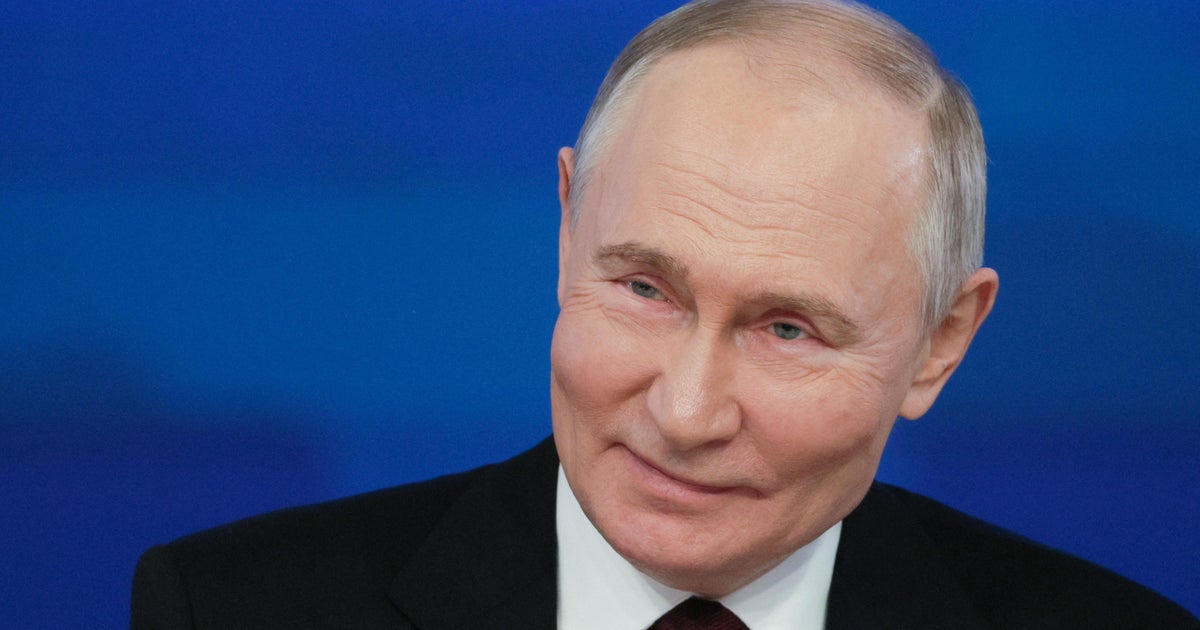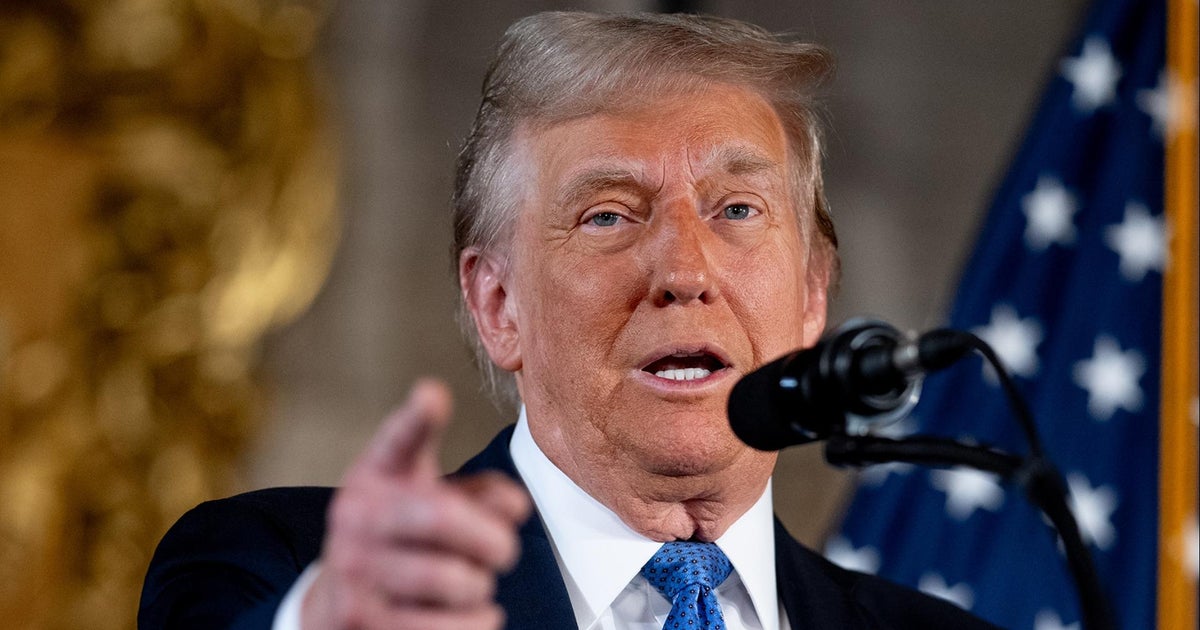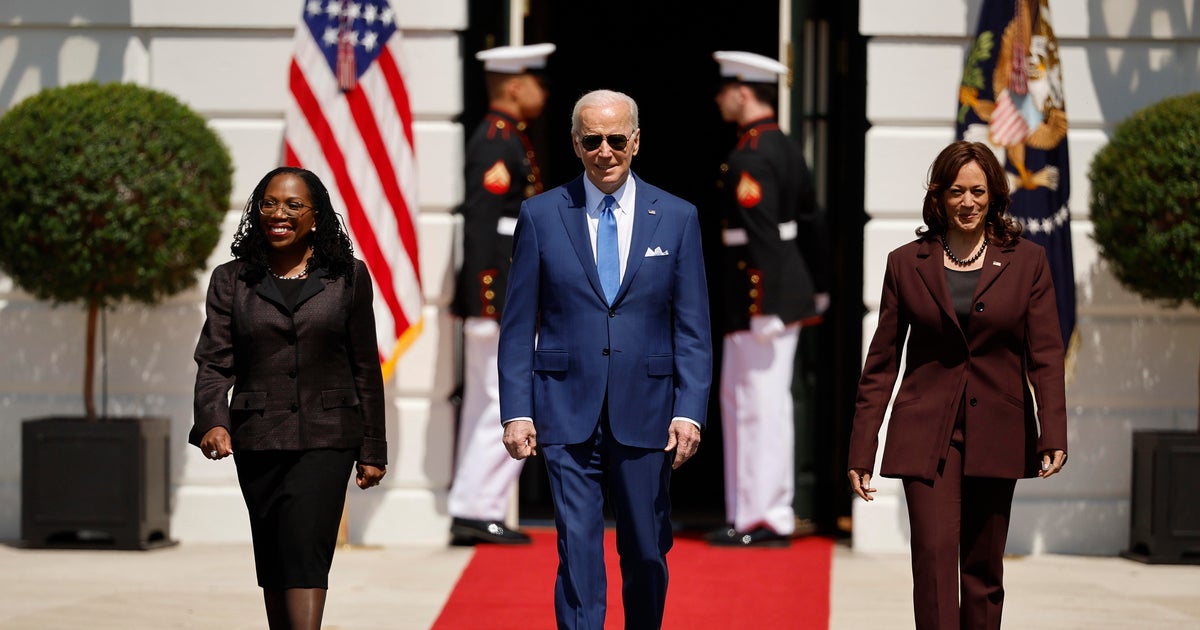Russians vote on reforms that could allow Putin to remain president until 2036
Moscow — Russia wraps up a vote on constitutional reforms on Wednesday that would allow President Vladimir Putin to stay in office for two more terms. The vote was originally scheduled for April 22, but authorities had to reschedule it due to the spread of the coronavirus in the country.
Russians were given the option of voting for or against the whole package of changes, but there's little doubt about the outcome. The vote is widely seen as an effort to demonstrate Putin's broad support in the country, and he's virtually guaranteed to win the chance for two more terms in the presidency.
The constitutional amendments also include a ban on same-sex marriages, new language mentioning for the first time the importance of "faith in God," and measures meant to protect "traditional family values" and forbidding top officials from holding dual citizenship.
One of the amendments expressly forbids any "actions aimed at the separation of a part of the territory of the Russian federation, as well as calls for such actions." That, of course, now includes the Crimean Peninsula, which Putin unilaterally annexed from Ukraine in 2014. Among the other amendments are measures to increase pension payments and the national minimum wage.
While Wednesday was the official day for the vote, polling stations have been open for a week in an effort to enable social distancing amid the pandemic — and also to increase turnout.
"President for life"
Opposition leader Alexei Navalny criticized the vote as a populist spectacle designed to give 67-year-old Putin the right to be "president for life."
Putin is currently serving his fourth term as president. He has also served on term as prime minister, meaning he has effectively run Russia for the past 20 years. His current term ends in 2024 and, under the current constitution, he's not permitted to run for a fifth term. The amended constitution, however, would allow him to be the country's president until 2036, assuming he can win two more elections.
He often defends the conservative political regime he's ushered in by saying Russia has seen enough turbulence in the past, and his strong leadership has brought stability. The constitutional amendments would help ensure that stability, he argues, by avoiding the distraction of a hunt for a successor from among Russia's political elite.
"I know that in two years, instead of working normally at all levels of the state, all eyes will be on the search for potential successors," Putin said in a recent interview with state-run television. "We must work and not look for successors."
He's said he may consider running for a fifth term, but insists he hasn't decided yet.
Constitutional reform and COVID-19
Face masks and hand sanitizer were made available to the millions of voters at polling stations across the country. In Moscow, voters also had the option of voting online at home.
In other provinces officials organized polling stations outdoors, due to health concerns. Social media photos showed people casting ballots on tree stumps, in plastic tents, on benches and in playgrounds.
Tatiana Stanovaya, head of political consultancy R. Politik, said Putin's decision to go ahead with the vote despite the spread of the coronavirus reflected his personal style.
"The faster, the better," Stanovaya told CBS News of the president's strategy, noting that while still high, Putin's popularity rating has declined during the epidemic. "He likes to hold everything in a special operation mode."
Possibly adding more urgency, officials have been warning of a possible second wave of coronavirus infections still looming on the horizon. Critics argue the voting itself could contribute to coronavirus outbreaks.
While the number of new COVID-19 cases recorded daily in Russia has been on the decline, the disease is still spreading. Russia remains the third-worst hit country, behind the U.S. and Brazil, with more than 650,000 cases confirmed.
Putin's opponents had planned to stage demonstrations against the proposed constitutional reforms in April, but they were canceled due to the coronavirus lockdown and a ban on mass gatherings.
Some opposition figures who had earlier called for people to come out and vote against the reform decided to halt that campaign, saying they couldn't ask people to go to the polls and risk their health.
Navalny called on his supporters to ignore the vote entirely, saying it lacked legitimacy.
At the polls
English teacher Svetlana, 58, told CBS News she came to her polling station in Moscow to vote against the amendments, as she wants a better future for her two sons who can't find decent jobs.
"Everything is done for the president to stay longer in power," she said. She said she doesn't expect any improvements with the changes to the new constitution. "I think everything will be the same," she said. She declined to give her last name.
Yuri, a retiree, said he voted in favor of the proposals, with particular interest in the extended social benefits. He doesn't believe the reforms have been designed to boost Putin's power.
"Ninety percent of the proposals are very important for me," he told CBS News. "We choose our president ourselves – if there is a decent candidate, we will vote for that decent candidate."
The amendments to the 1993 constitution have already been approved by a majority of Russia's lawmakers in parliament, but Putin insisted in a recent televised address that they would only be adopted with the support of the Russian people.
State-run exit polls released earlier this week have already shown 76% of early voters in favor of the amendments.
"There will be 70% approval, but there is no real support behind this. It's a mock-up," the analyst Stanovaya told CBS News. She said the reforms had further divided Russian society, and that, she believes, could prove a headache for the country's leadership in the years to come.





